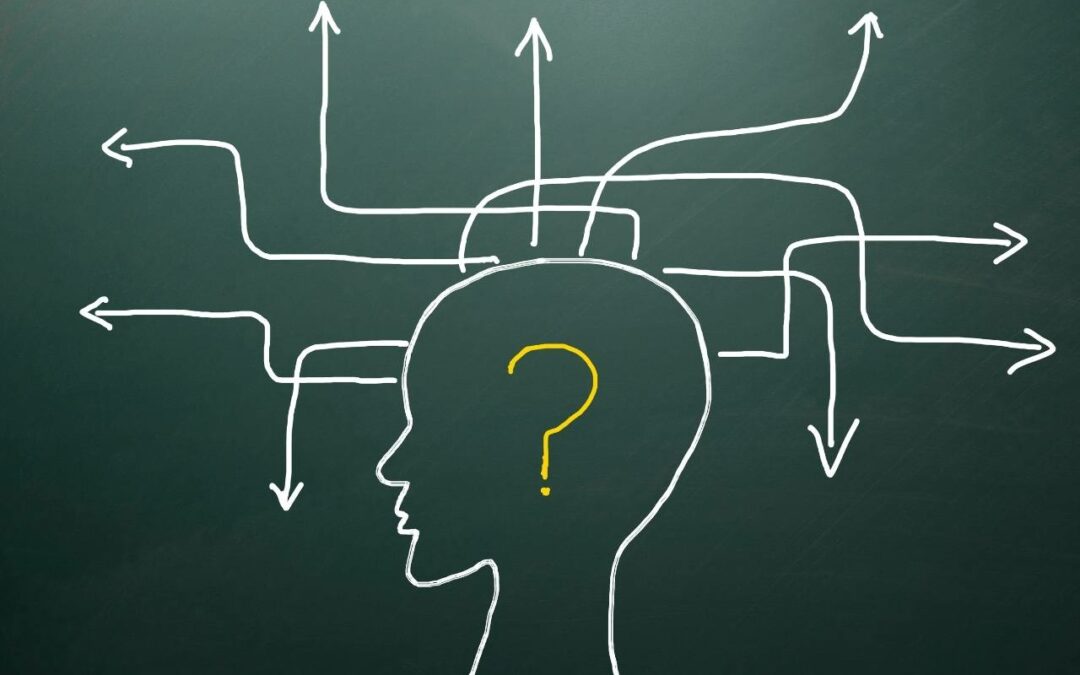How Trusting Life Helps Us Let Go
Do you sometimes find yourself thinking, “I just need to let go and everything will be fine,” and then try to do it without any results? Worse, the more you try to let go, the more impossible it seems!
Why is an action that seems so simple, and logically requires no physical effort, so difficult to achieve? What fear hides behind the inability to let go? Let’s take a closer look at what’s happening inside us in these situations.
Jacques wants to express himself well, have clear ideas, and communicate them simply to those around him. He observes and analyzes each of his sentences, self-correcting and criticizing at the slightest mistake. As a result, his communication only gets worse.
Delphine wants her son to succeed in his end-of-year exams. She constantly reminds him how important it is to succeed. As a result, her son has no desire to study.
Marion wants her family to accept her choice of partner, and she keeps highlighting her future husband’s qualities. As a result, her family builds a strong case against the marriage. What if the best strategy for Jacques, Delphine, and Marion was to let go?

This may seem counterintuitive, but letting go of an expected outcome frees you from the fear of losing and grants access to additional resources that help ensure the desired result.
In other words, Jacques would improve his ability to correct his communication if he let go of his demand for perfect communication. Delphine would strengthen her power of persuasion if she gave her son the right to fail, and if Marion let go of the idea that her family must approve of her choice, they would feel reassured by her confidence in her decision, despite external resistance.
What prevents them from letting go is their desire to have control over the situation, to direct events. They prefer the illusion of being in control, even though deep down they know it’s impossible. The feeling of control becomes their little addiction, and they take pleasure in maintaining the fantasy of being able to anticipate and predict everything, believing they can avoid catastrophes. And this is where the worst happens—suddenly, the complexity of the situation increases, and they finally realize that there were things beyond their control. Letting go becomes inevitable, and that’s what scares them.
“Where does this fear of the unknown come from, and how can it be overcome?” ?

For millennia, human beings have sought to understand and tame the forces of nature in order to prepare for its pleasant and unpleasant surprises. We have learned to associate phenomena with their consequences, allowing us to deduce common patterns. Our brain naturally seeks to link various pieces of information to infer interdependencies and develop adaptive strategies. However, situations of uncertainty and lack of control continue to trigger our fears and anxieties. In a world where our survival is increasingly assured, where few of us go to bed wondering, ‘Will I be attacked by a wild animal tonight?’, we have lost the habit of accepting uncertainty as a normal feeling; we have lost the habit of dealing with uncertainty in our daily lives.
Where does this fear of the unknown come from, and how can it be overcome?
For millennia, human beings have sought to understand and tame the forces of nature in order to prepare for its pleasant and unpleasant surprises. We have learned to associate phenomena with their consequences, allowing us to deduce common patterns. Our brain naturally seeks to link various pieces of information to infer interdependencies and develop adaptive strategies. However, situations of uncertainty and lack of control continue to trigger our fears and anxieties. In a world where our survival is increasingly assured, where few of us go to bed wondering, ‘Will I be attacked by a wild animal tonight?’, we have lost the habit of accepting uncertainty as a normal feeling; we have lost the habit of dealing with uncertainty in our daily lives.
How did our predecessors, for whom uncertainty was a constant companion, cope? What strategies did they have to avoid succumbing to anxiety? Can we draw inspiration from their behavior, and if so, how?
Before answering this question, a small scientific study1 sheds light on the beliefs we turn to when faced with situations where we feel control is slipping away. At the University of Amsterdam, 140 people were asked about their spiritual beliefs regarding the origin of life. Then, participants were asked to recall a memory where they felt a lack of control and to provide three arguments supporting the idea that the future is uncertain. At the end of the experiment, participants had to choose between two theories of the origin of life – Darwin’s theory, which suggests random processes, and the theory of Intelligent Design, which posits that a higher intelligence (Creator, God, Life, etc.) orders life’s events.
The study showed that belief in a higher order increased in situations of uncertainty. In other words, when we feel that events are beyond our control, we naturally seek security in a greater force, an order that allows us to recognize that we are not alone and can rely on this higher intelligence to regain the serenity that everything is under control, even if that control is not ours.
Conclusion of the study: Believing in the existence of a higher intelligence helps manage anxiety related to the fear of the unknown during times of uncertainty.

It is impossible to let go simply by telling ourselves to do so.
I have never seen anyone able to do that. However, you will naturally let go when you see that someone or something more competent than you is handling the situation and helping you move toward your goals.
To develop this attitude of trust in life, you first need to know your goals. Clearly identifying and specifying your objectives will allow you to stay focused on the destination you want to reach. It is impossible to see how life is helping you if you don’t know what end you’re trying to achieve.
Next, you need to start looking for the connections between what you are experiencing and the qualities you need to develop to reach that goal. In other words, understand how the situation you’re going through is helping you become the person you want to be. Notice how the people or events that naturally come your way are perfect for training you to develop your talents.
To further increase the certainty that life is helping you grow at every moment, you can use your past. Recall three past events that you found unpleasant at the time but that ultimately helped you develop qualities important to you. Clearly see how, without those events, it would have been difficult to acquire these skills. List all the things you benefit from today that bring you closer to your final goal because of those experiences.
This last exercise helps you enhance your ability to connect the dots of the puzzle and see the order forming behind seemingly random situations. Play with your past and present until you develop the certainty that whatever happens, you will learn and grow. This trust that life accompanies us on the journey and helps us achieve our goals stabilizes us internally when external things seem unstable. The question here is not about proving whether a higher order truly exists, but learning to use the feeling it gives us in service of our goals. A quality life is one filled with quality emotions. What better way to cultivate a sense of gratitude toward life, especially when unpleasant events cross our path?
1. Rutjens, B. T., van der Pligt, J. & van Harreveld, F. Deus or Darwin: Randomness and belief in theories about the origin of life. J. Exp. Soc. Psychol. 46, 1078–1080 (2010).
2. Kross, E., Berman, M. G., Mischel, W., Smith, E. E. & Wager, T. D. Social rejection shares somatosensory representations with physical pain. Proc. Natl. Acad. Sci. U. S. A. 108, 6270–5 (2011).






